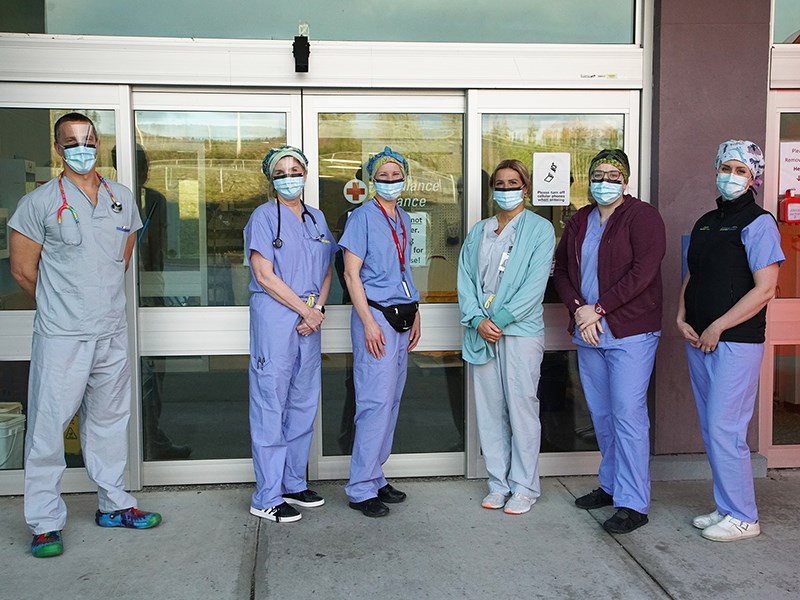How does our situation in Powell River relate to the pandemic elsewhere in the province and country? This is a question that has been top of mind for many of us. The connections are not always clear, but they are important.
In terms of case numbers, November has been the worst month of the pandemic in BC so far. While most cases were identified in the Lower Mainland, rates have risen in every health authority, affecting both rural and urban communities. Provincially, there are now more than double the number of people in hospital with COVID-19 than there were on the peak day during the first wave in spring.
While we recognize we are somewhat isolated, we are still affected by what happens in the rest of the province. For example, most of our transfers for life-threatening illnesses go to Vancouver. This includes COVID-19 patients who require hospitalization, whom we generally aim to transfer within 24 hours of being admitted to our hospital.
If intensive care resources in Vancouver are overwhelmed, transfers from Powell River may be delayed. While most patients can be managed safely here in the short term, long transfer delays can strain local resources. To avoid these scenarios we must do what we can to prevent local COVID outbreaks, and to manage them well if they do occur.
As of October 31, BC Centre for Disease Control reported a total of 39 confirmed cases in our local health area (City of Powell River, qathet Regional District and Tla’amin Nation combined) since the start of the pandemic. We know this number will climb, but our area has fared relatively well thus far, and we hope to maintain this trend.
There are three basic ways we can prevent this virus from becoming more widespread locally. First, by reducing the amount of virus introduced to the community through travel. Second, by taking routine precautions so the virus doesn’t spread before someone knows they are sick. And finally, by testing for the virus, and containing it, if someone does become sick.
Because of Powell River’s isolation by ferries and flights, and our relatively small population, so far we have had the opportunity to contain each case or cluster as it has occurred. By limiting our non-essential travel, and our exposure to those who have travelled, we can curb new instances of this virus arriving in the community.
Washing our hands, wearing masks indoors, physically distancing and limiting our social circles helps to reduce the likelihood of getting sick, even if we come into contact with this virus. Workplaces, businesses and schools have put additional layers of protection in place through their safety plans. Each individual and collective action helps form the invisible walls that stop this virus from spreading, even if we don’t know it is there.
If there is a confirmed exposure it is contained when those affected help public health staff to identify close contacts who may have been exposed, and by following isolation guidelines. These protections can only be used, however, when people with symptoms of COVID-19 get tested.
Taking a day or two off work to wait for test results can be difficult, especially if someone is not feeling particularly ill. But it is much easier than dealing with the consequences of spreading COVID-19 among co-workers or within the community. We are very fortunate to have excellent testing access in our area. Over the past nine months nearly 3,000 coronavirus tests have been done in Powell River.
In addition to preventing a local surge of COVID-19 cases, it is also important to address other potentially serious medical issues when they arise, and before they progress.
During the first wave of the pandemic, many people delayed getting medical attention for serious, and even life-threatening, issues for fear of burdening the medical system, or of being exposed to coronavirus. In the past few weeks, as case numbers have risen in the province, we have seen local emergency room and medical office visits start to drop again.
We strongly encourage people to seek urgent, routine and preventative medical care when needed. Infection control practices in health-care sites have been practiced and enhanced for months now, and we are fortunate to have strong local capacity, both at the hospital and in clinics.
This holiday season will not be typical and we are all struggling with the current travel and social restrictions. However, we know this is not forever. We also know it is important to each do our part to support the health of those we care about, and that of our community in general.
Stay kind and stay well.
~ Powell River Physicians COVID-19 Steering Group



